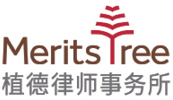Article 69 of the Patent Law stipulates the “Bolar exception” clause for drug infringement. As there is no definition of patented drugs in the Patent Law, there is still some dispute in the industry as to whether the Bolar exception clause can be used for non-infringement defence when producing some patented compounds with pharmaceutical activity. This article attempts to analyse the connotation and extension of the concept of “patented drug” to clarify the application scenarios of the Bolar exception clause.
The definition of drugs
Article 69.5 of the Patent Law stipulates that, “Those who manufacture, use or import patented drugs or medical devices for the purpose of providing information needed for administrative examination and approval, and those who specially manufacture or import patented drugs or medical devices” shall not be deemed as infringing others’ patent rights.

Partner
Merits & Tree Law Offices
Article 50, concerning compulsory licences, also stipulates that, “For the purpose of public health, the Patent Administration Department under the State Council may grant a compulsory licence to manufacture and export the patented drugs to the countries or regions that conform to the provisions of the relevant international treaties to which the People’s Republic of China is a party”.
Besides that, there is no definition of drugs in the Patent Law. The administrative approval mentioned in the Bolar exception clause corresponds to the administrative approval of drugs. For example, the Guidelines for Determination of Patent Infringement issued by Beijing High People’s Court has made it clear that, “The information required for administrative approval refers to the experimental data, research reports, scientific literature and other relevant materials specified in the Drug Administration Law, the Regulations for the Implementation of the Drug Administration Law, the Measures for the Administration of Drug Registration, and other relevant drug administration laws and regulations, departmental rules and regulations”.
Article 2 of the Drug Administration Law (2019) stipulates that, “The drugs mentioned in this law refer to the substances used to prevent, treat and diagnose human diseases, purposefully regulate human physiological functions, and specified with indications or functional indications, usage and dosage, including traditional Chinese medicine, chemical drugs and biological products”. In addition, article 24 of the Drug Administration Law stipulates that, “Drugs commercialised in China shall be approved by the drug regulatory department under the State Council and obtain a drug registration certificate”.
It can be seen that, under the Drug Administration Law, the connotation of drugs should meet the requirements of specified indications or functional indications, usage and dosage, and should be regulated by the drug regulatory authorities rather than by the producers themselves. Drugs should be commercialised products, which must be approved by the drug regulatory department under the State Council within the territory of China, and by the local drug regulatory department outside the territory of China.
Legislative intention
The purpose of the Bolar exception clause is to deal with the delay caused by the approval system for the commercialisation of generic drugs and medical devices after the expiration of the patent term, so as to avoid extending, in another sense, the patent protection period of related original drugs and medical devices.
According to the Bolar exception clause, enterprises producing generic drugs can make corresponding production and preparation in advance, before the patent term of patented drugs expires, and provide the information needed for administrative approval so that generic drugs can be commercialised immediately after the patent term of the original drugs expires, and the public can buy cheaper generic drugs in time so as to improve the accessibility of drugs.
In the classification of chemical drug registration, adjusted by the State Food and Drug Administration in 2016, generic drugs include those that imitate the drugs commercialised overseas but not in China, and those that imitate the drugs commercialised in China. It can be seen that the premise of imitation is that the original drugs have been commercialised at home or abroad. That is to say, the patented drugs in the Bolar exception clause should correspond to the original drugs that have been commercialised.
Extension of the concept of patented drugs
Article 73 of the Rules for the Implementation of the Patent Law (2010) stipulates that, “The patented drugs mentioned in article 50 of the Patent Law refer to any patented products in the field of medicine required to solve public health problems, or products directly obtained according to the patent methods, including the active ingredients needed to manufacture the products, for which the patent right is obtained, and the diagnostic supplies needed to use the products”.
In the Guidelines for Administrative Adjudication of Patent Infringement Disputes, issued by the State Intellectual Property Office, it is further clarified that, “In order to provide the information needed for administrative examination and approval, the implemented drug patents include not only the patent of the drug itself, but also the patent of the active ingredient of the drug, the patent of the preparation method of the drug, and the patent of the preparation method of the active ingredient of the drug”.
It can be seen from these provisions that the extension of “patented drugs” goes to the active molecules related to drugs, and active pharmaceutical ingredients (APIs). That is to say, the extension of patented drugs in the sense of the Patent Law goes beyond the meaning of drugs in the Drug Administration Law, which is not limited to the approved and commercialised drugs, but extends to the active ingredients and APIs of commercialised drugs.
In other words, once a drug is identified, the defence of the Bolar exception clause can be deployed in respect of the manufacturing activities of the drug itself, its active ingredients, and the APIs.
To sum up, as a special chemical product, drugs should be clearly distinguished from ordinary chemical products or substances with certain pharmaceutical activity. When manufacturing patented compound products, only when the properties of the drug to be imitated are clearly defined can the Bolar exception clause be properly applied for non-infringement defence.
Tang Huadong is a partner at Merits & Tree Law Offices.

5/F, Raffles City Beijing Office Tower
No.1 Dongzhimen South Street
Dongcheng District, Beijing 100007, China
Tel: +86 10 5650 0900
Fax: +86 10 5650 0999
E-mail:
huadong.tang@meritsandtree.com
www.meritsandtree.com





















